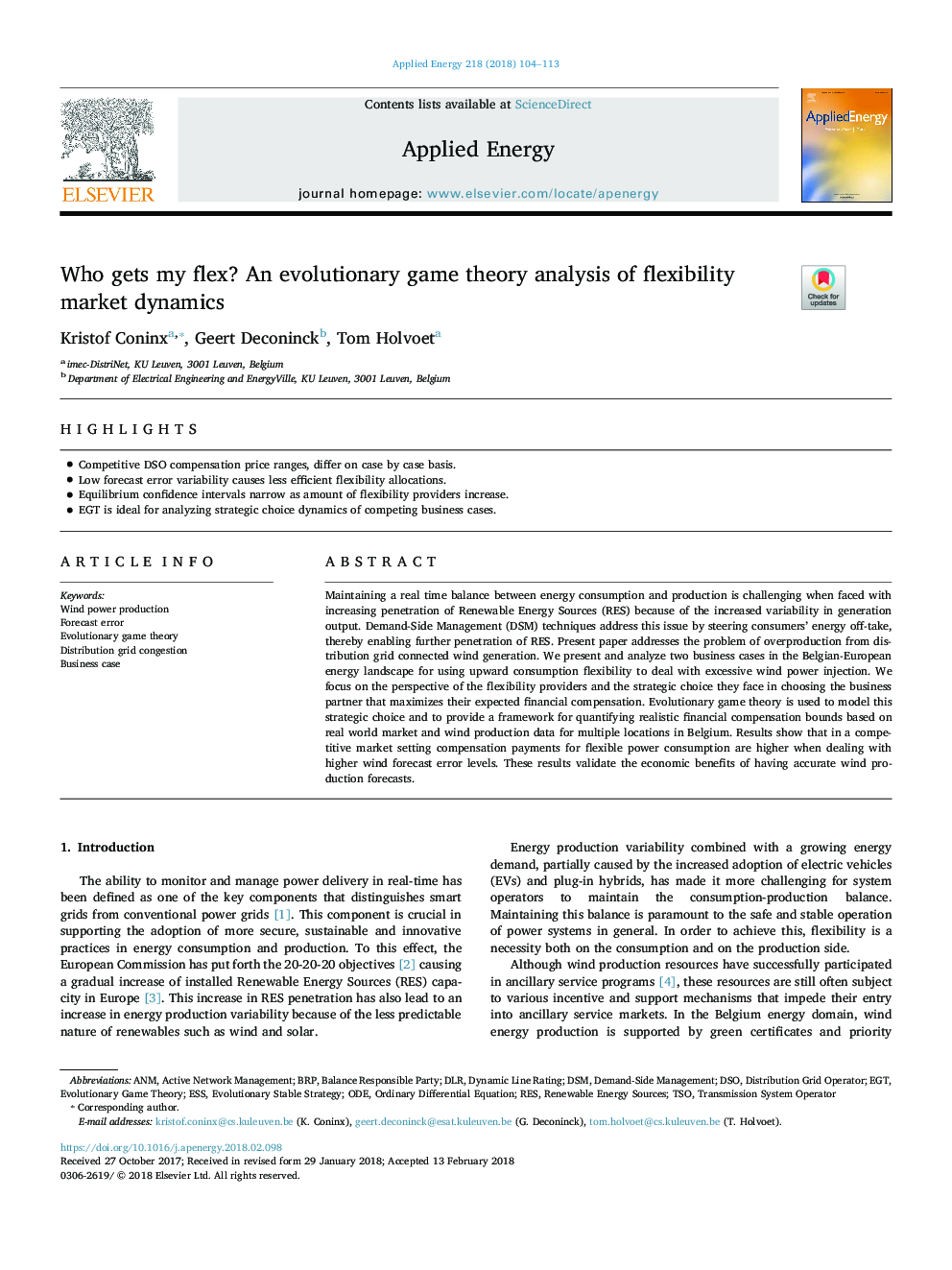| Article ID | Journal | Published Year | Pages | File Type |
|---|---|---|---|---|
| 6680395 | Applied Energy | 2018 | 10 Pages |
Abstract
Maintaining a real time balance between energy consumption and production is challenging when faced with increasing penetration of Renewable Energy Sources (RES) because of the increased variability in generation output. Demand-Side Management (DSM) techniques address this issue by steering consumers' energy off-take, thereby enabling further penetration of RES. Present paper addresses the problem of overproduction from distribution grid connected wind generation. We present and analyze two business cases in the Belgian-European energy landscape for using upward consumption flexibility to deal with excessive wind power injection. We focus on the perspective of the flexibility providers and the strategic choice they face in choosing the business partner that maximizes their expected financial compensation. Evolutionary game theory is used to model this strategic choice and to provide a framework for quantifying realistic financial compensation bounds based on real world market and wind production data for multiple locations in Belgium. Results show that in a competitive market setting compensation payments for flexible power consumption are higher when dealing with higher wind forecast error levels. These results validate the economic benefits of having accurate wind production forecasts.
Keywords
Related Topics
Physical Sciences and Engineering
Energy
Energy Engineering and Power Technology
Authors
Kristof Coninx, Geert Deconinck, Tom Holvoet,
